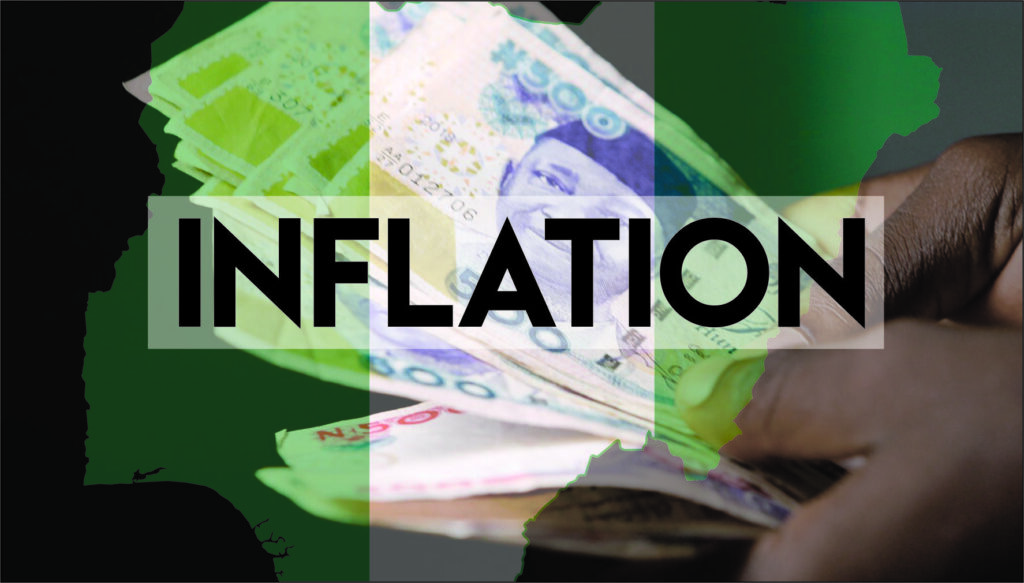CEM REPORT, INFLATION | Nigeria’s inflation rate is expected to reach a staggering 34.98% in April, according to a recent forecast by analysts at Cordros Capital. This alarming projection paints a grim picture for the country’s economic landscape, highlighting the tightening grip of rising prices on Nigeria consumers.
The analysts at Cordros Capital attribute this significant inflation jump to several key factors. Firstly, “base effects” from the previous year play a crucial role. In simpler terms, if inflation was already high last year, it creates a higher starting point for calculating inflation this year, even if prices haven’t risen as much.
Secondly, the recent hike in electricity tariffs adds another layer of cost pressure to businesses and households alike. Electricity is essential for powering homes and running businesses, so any increase in its price automatically translates to higher expenses across the board.
Finally, the increased demand associated with the Eid-el-Fitr festivities also contributed to the inflation surge. Eid is a major holiday in Nigeria, and the associated celebrations often lead to a temporary spike in demand for goods and services.
Read Also: NERC Hikes Band A Electricity Tarif, Affecting 15% of Consumers
These factors build upon existing challenges that have been plaguing the Nigerian economy for some time.
“In the near term, we expect the headline inflation to be influenced by the base effects from the prior year, the recent hike in electricity tariffs and increased demand that accompanied the Eid-el-Fitr festivities. Consequently, we now look for a m/m headline inflation of 3.27 in April, translating to a y/y reading of 34.98 per cent.
“Consumer prices maintained the uptrend, rising by 150 basis points (bps) to 33.2 per cent year-on-year in March,” the Cordros Capital report states.
Food Prices at 19-Year High, Core Inflation Hits New Record
Cordros Capital’s report further reveals a concerning trend in food prices. Consumer food inflation reached a staggering 40.01% year-on-year in March, the highest level in 19 years. This highlights the significant burden that rising food costs are placing on Nigerians, especially those struggling with limited household budgets.
The report also points out that core inflation, which excludes volatile food and energy prices, reached 25.90% year-on-year in March. This marks the highest level since March 2004, indicating that inflationary pressures are not limited solely to food and energy but are affecting a broader range of goods and services.
“Thus, food prices (+209bps to 40.01 per cent y/y) remained at a 19-year high, while core inflation (+77bps to 25.90 per cent y/y) is at its highest level since March 2004 (32.60 per cent y/y). However, on a month-on-month basis, the headline inflation moderated by 10bps to 3.02 per cent m/m, primarily due to the moderation in food price increases.
Investors Urged to Adapt Strategies Amid Market Volatility
In light of these worrying economic trends, Cordros Capital is urging investors to carefully reevaluate their trading and investment strategies. With interest rates expected to rise and alternative investment options offering potentially higher yields, investors need to adapt to this changing environment.
The report emphasizes the importance of closely monitoring key economic data and foreign exchange market activity. These factors can significantly impact the productivity of the Nigerian economy and its attractiveness to foreign investors.
“Market players should continue to monitor macroeconomic reports and unfolding activities in the exchange market about how they impact the productivity level of the nation’s economy going forward and the attraction of foreign inflow.”
Bearish Market Sentiment Expected
Cordros Capital also predicts a continuation of bearish sentiments in the Nigerian stock market. This refers to a pessimistic outlook among investors, leading to a decline in stock prices. The recent announcement regarding the suspension of the Dangote Foods merger, coupled with ongoing reactions to the bank recapitalization exercise, are expected to further fuel profit-taking activities, pushing stock prices lower.
“In the short-medium term, we expect investors’ sentiments to be influenced by developments in the macroeconomic landscape and corporate actions.”
The short-to-medium-term outlook for investor sentiment appears to be heavily influenced by developments in the broader macroeconomic landscape and actions taken by corporations.
If You Ask Me
If you ask me, I’ll say, Nigeria’s inflation crisis demands a multi-pronged approach. The government must address structural challenges in the agricultural sector to improve food production and distribution. Additionally, policies aimed at stabilizing the exchange rate and managing energy costs are crucial.
For consumers, this period of high inflation necessitates careful budgeting and a focus on essential goods.
Investors, meanwhile, need to be adaptable and stay informed as they navigate the volatile market environment. By closely monitoring economic data and corporate actions, they can make informed decisions to protect their assets and potentially find new opportunities.
The coming months will be a test for the Nigerian economy. While the short-term outlook appears challenging, decisive action from policymakers and informed decision-making by consumers and investors can pave the way for a more stable future.












